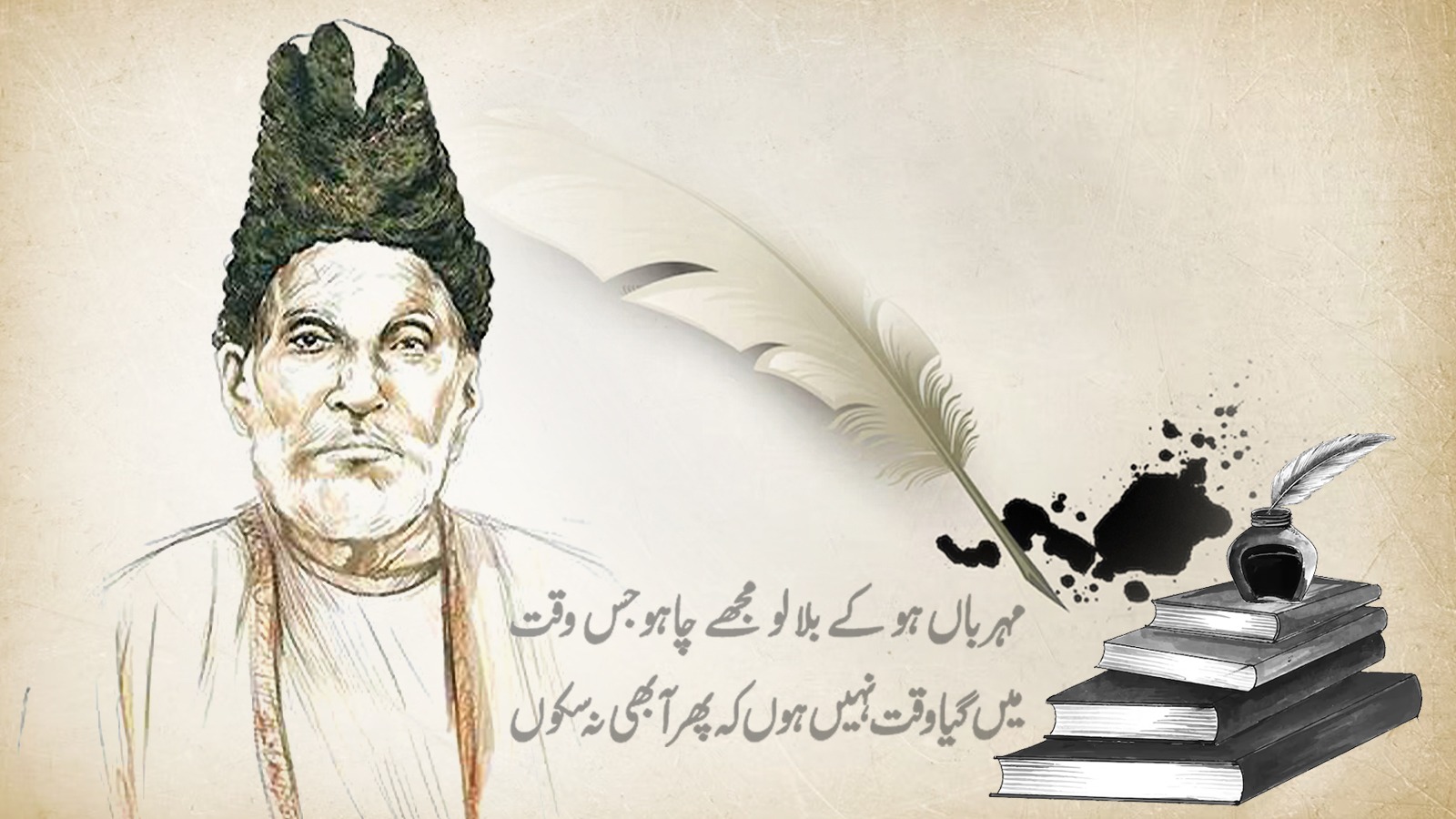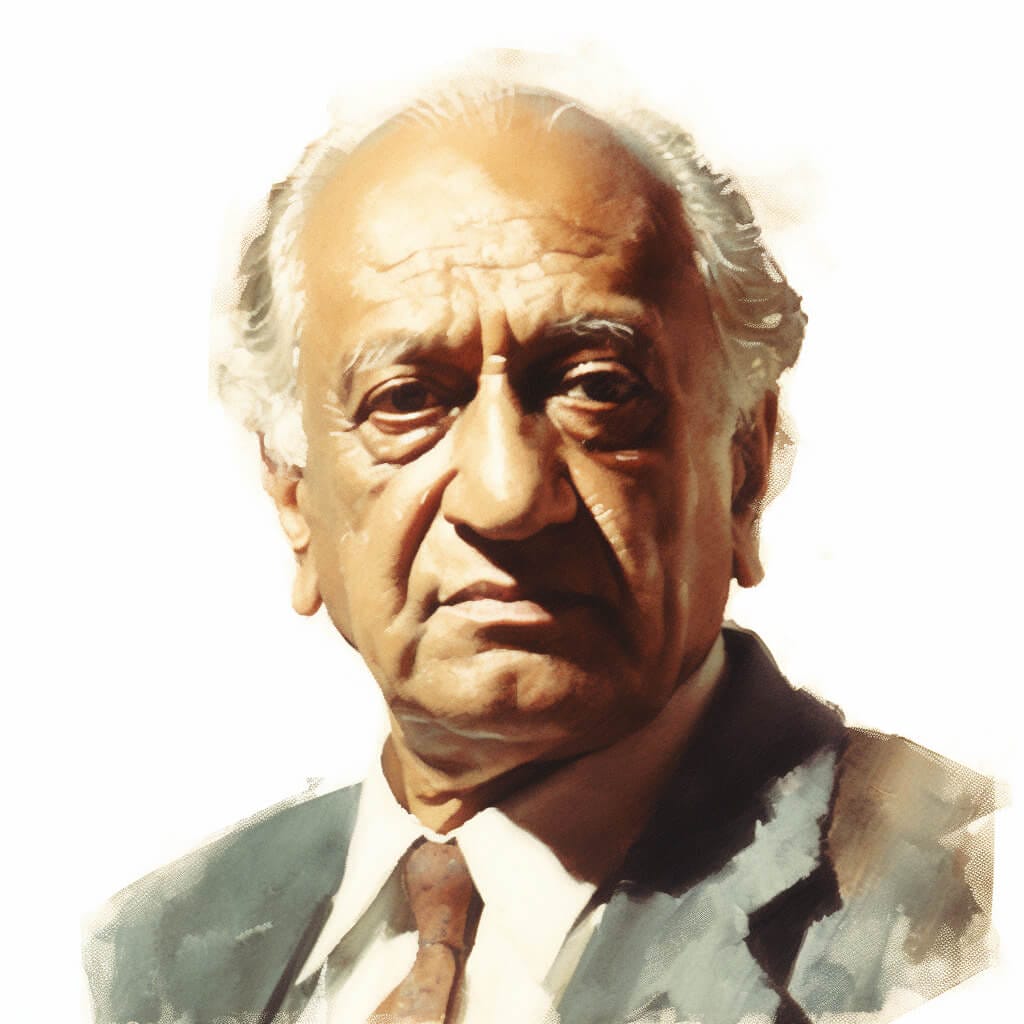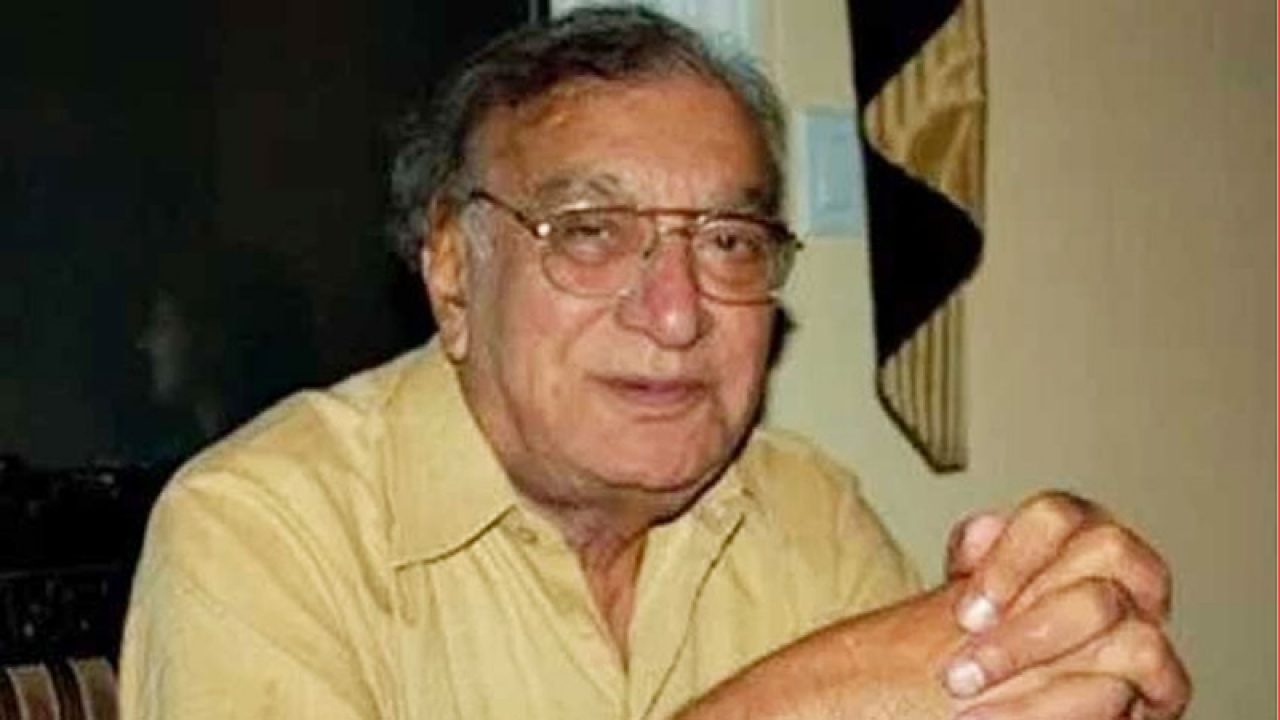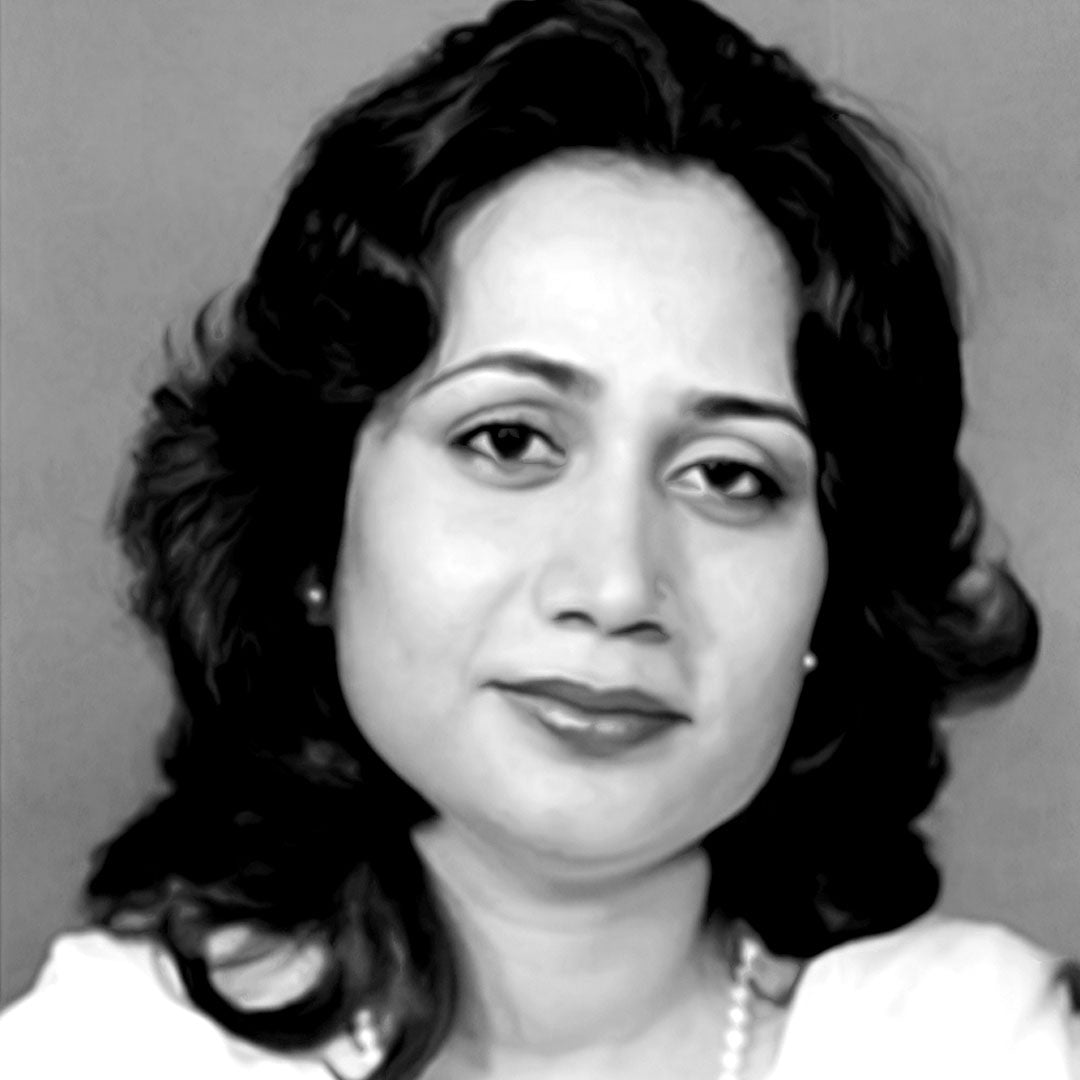Urdu poetry stands as a timeless cultural treasure, embodying the depth and beauty of human emotions, thoughts, and experiences. Rooted in centuries of tradition, it has served as a powerful medium to express love, loss, spirituality, and societal struggles, resonating across generations. The intricate wordplay, evocative imagery, and profound symbolism in Urdu poetry have captivated audiences far beyond the borders of South Asia.
Globally, Urdu poetry enjoys admiration for its literary brilliance and artistic relevance. Renowned poets, particularly the famous Urdu poets, have inspired countless readers and writers, with their works translated into multiple languages, bridging cultural divides. This global appeal underlines the universal truths and emotions encapsulated in the verses of these poetic masterpieces.
Urdu poetry has gifted us some of the most famous Urdu poets who have left an indelible mark on the world of literature. These iconic figures have not only shaped Urdu poetry but have also enriched global literature through their unparalleled contributions.
In this blog, we will explore the lives, works, and impact of the top 5 famous Urdu poets of all time, celebrating their legacy and the enduring magic of their words.
Section 1: The Golden Legacy of Urdu Poetry
The history of Urdu poetry is a tale of evolution, blending diverse cultural influences and linguistic traditions to create a unique literary treasure. Emerging during the late Mughal era, Urdu poetry drew inspiration from Persian, Arabic, and Indian literary traditions, shaping a language of unparalleled depth and elegance. Over centuries, it became a powerful vehicle for creative expression, resonating with both the elite and the common people.
Urdu poetry evolved as a medium to articulate profound emotions—love, longing, grief, and ecstasy—through ghazals, nazms, and rubaiyat. It transcended personal emotions to address broader socio-political issues, reflecting the struggles of a society in transition. Whether capturing the pain of colonial oppression or inspiring movements for social change, Urdu poetry has always mirrored the complexities of its time.
These famous Urdu poets have shaped this legacy with their unmatched creativity and mastery of language. From Mirza Ghalib’s introspective verses to Allama Iqbal’s philosophical musings and Faiz Ahmed Faiz’s revolutionary poetry, each poet brought their unique voice to this art form, enriching its scope and impact. Their works have immortalized Urdu poetry as a symbol of resilience, cultural pride, and artistic excellence, ensuring its relevance in every era.
Section 2: Top 5 Famous Urdu Poets of All Time
Mirza Ghalib (1797–1869): The Timeless Voice of Urdu Poetry
Mirza Ghalib, often referred to as the “King of Ghazals,” is an iconic figure in Urdu literature, celebrated for his profound and introspective poetry. Born as Mirza Asadullah Baig Khan in Agra, he lived through one of the most turbulent periods in Indian history, marked by the decline of the Mughal Empire and the advent of British colonial rule. These historical and societal changes deeply influenced his poetry, making it a mirror to the existential struggles of both his personal life and his era.
The Poet’s Unique Voice
Ghalib’s poetry transcends mere romanticism and ventures into the realms of philosophy, spirituality, and human psychology. His ghazals often grapple with the concept of the self, the nature of love, the impermanence of life, and the divine. What sets Ghalib apart is his ability to blend intellectual depth with emotional intensity. His verses speak to the human condition in a way that remains relatable even centuries later.
An example of his introspective style is evident in this couplet:
“Hazaron khwahishen aisi ke har khwahish pe dam nikle,
Bahut nikle mere armaan lekin phir bhi kam nikle.”
(“Thousands of desires, each so intense that they could take my breath away,
Many of these I have realized, yet far too few ever truly emerged.”)
Here, Ghalib captures the eternal human yearning for more, a longing that remains central to our experiences of ambition and regret.
Themes in Ghalib’s Poetry
- Love and Longing:
Ghalib’s ghazals are drenched in the bittersweet essence of love. His portrayal of love is not confined to romantic notions but also explores its metaphysical dimensions—love as a connection to the divine and as a catalyst for self-discovery. - Existential Reflection:
A recurring theme in Ghalib’s poetry is his contemplation of life’s fleeting nature and the pain of existence. His verses reveal a deep understanding of human vulnerability and resilience. - Divine and Spiritual Quest:
Ghalib’s poetry often reflects his struggle to understand and connect with God. His questioning and, at times, irreverent tone towards divinity showcase his courage as a poet who dared to explore complex spiritual ideas.
The Timeless Appeal of Ghalib’s Poetry
Mirza Ghalib’s work is remarkable for its linguistic mastery and innovative use of metaphors, symbolism, and wordplay. His ability to convey profound ideas with simplicity ensures that his poetry remains accessible to all. Ghalib’s influence extends far beyond the realm of Urdu literature, inspiring translations, adaptations, and studies in multiple languages.
A testament to his enduring appeal is the continued recitation and celebration of his poetry in literary gatherings, theater, and cinema. His ghazals have been immortalized in music, bringing his work closer to new generations.
Mirza Ghalib is undoubtedly one of the most famous Urdu poets, whose works have left an indelible mark on world literature. His poetry invites readers to reflect on their inner worlds, offering solace and inspiration through the timeless beauty of his words. Ghalib’s legacy as a universal poet ensures that his verses will resonate as long as human emotions and aspirations endure.


Picture Credits: https://indianexpress.com/
Allama Iqbal (1877–1938): The Visionary Poet of the East
Allama Iqbal, celebrated as the “Poet of the East” (Shair-e-Mashriq), was not just a poet but a philosopher, visionary, and one of the most influential thinkers of the 20th century. Born in Sialkot, Punjab, during British India, Iqbal’s literary contributions laid the ideological foundation for the socio-political awakening of Muslims in the subcontinent, earning him a revered status in both literature and history.
Philosophical Foundations of Iqbal’s Poetry
Iqbal’s concept of Khudi (selfhood) remains one of the most profound ideas in his poetic and philosophical work. He envisioned Khudi as a path to self-realization, empowerment, and divine connection. For Iqbal, understanding and nurturing Khudi was key to individual and national progress. Through this concept, he urged his audience to break free from servitude, embrace self-respect, and strive for excellence.
One of his most powerful verses on Khudi reads:
“Khudi ko kar buland itna ke har taqdeer se pehle,
Khuda bande se khud pooche, bata teri raza kya hai.”
(“Raise your selfhood to such heights that before destiny is written,
God himself asks you, ‘What is your wish?’”)
This couplet embodies Iqbal’s message of self-empowerment, urging individuals to take control of their destiny.
Key Themes in Iqbal’s Poetry
- National Pride and Unity:
Iqbal’s poetry was instrumental in inspiring pride and unity among Muslims of the Indian subcontinent. His iconic poem, Sare Jahan Se Achha, became a symbol of cultural pride and remains one of the most celebrated patriotic songs in South Asia. - Divine and Spiritual Quest:
Deeply spiritual, Iqbal explored the relationship between humanity and God. His poetry often emphasized the role of faith in achieving inner strength and societal progress. - Socio-Political Awakening:
Through works like Shikwa (The Complaint) and Jawab-e-Shikwa (The Answer to the Complaint), Iqbal addressed the decline of the Muslim community. These poems, written in an evocative and questioning tone, highlighted the community’s struggles while providing a call to action for revival and progress.
Iqbal’s Contributions to Urdu and Persian Poetry
While Iqbal wrote extensively in Urdu, his Persian poetry also stands out for its depth and universal appeal. In his Persian masterpiece, Asrar-e-Khudi (Secrets of Self), Iqbal delves deeply into his philosophy of selfhood, extending his message to a global audience.
Among famous Urdu poets, Allama Iqbal holds a special place for inspiring a sense of pride and purpose. His poetry transcended linguistic and cultural boundaries, becoming a source of inspiration for movements of independence and identity. His vision for an empowered and united society continues to resonate, ensuring that his works remain cornerstones of Urdu literature.
Enduring Legacy
Iqbal’s poetry and philosophy are not confined to his time; they continue to inspire readers worldwide. His works emphasize the potential of individuals and nations to rise above challenges, fostering a legacy of self-realization, unity, and resilience.
Allama Iqbal’s contributions extend beyond literature; he is a guiding light for those seeking purpose and progress. His timeless verses, rooted in universal truths, make him an eternal icon in the world of poetry and philosophy. Among the famous Urdu poets, Iqbal stands as a beacon of inspiration, his work reflecting the enduring power of words to transform individuals and societies.
Picture credits: https://www.layersoflondon.org/
Faiz Ahmed Faiz (1911–1984): The Revolutionary Voice of Urdu Poetry
Faiz Ahmed Faiz stands as a towering figure in Urdu literature, celebrated for his progressive ideals and revolutionary spirit. Born in Sialkot, British India, Faiz emerged as a poet who gave voice to the voiceless, weaving themes of love, resistance, and social justice into his verses. His poetry transcends time, reflecting the struggles of the oppressed while offering hope for a brighter future.
The Revolutionary Poet
Faiz’s poetry is deeply rooted in his personal experiences and his commitment to social and political causes. His work often mirrored the turbulence of the colonial era, the fight for independence, and the societal inequities of his time. What sets Faiz apart is his remarkable ability to blend personal emotions with collective struggles, creating verses that are both intimate and universal.
One of his most iconic poems, Hum Dekhenge (We Will See), became a rallying cry for resistance and change. It reflects an unyielding belief in the triumph of justice and humanity:
“Hum dekhenge, lazim hai ke hum bhi dekhenge,
Woh din ke jis ka wada hai.”
(“We shall see, it is certain that we too shall see,
That day which has been promised.”)
This poem resonates across generations, inspiring movements for social justice and freedom worldwide.
Key Themes in Faiz’s Poetry
- Love and Longing:
Faiz’s poetry often explores love not just as a romantic ideal but as a metaphor for universal compassion and solidarity. His famous ghazal, Mujh Se Pehli Si Mohabbat, reflects this transformation of personal love into a broader social consciousness. - Resistance and Revolution:
Faiz’s progressive outlook is evident in his works that critique oppression, inequality, and injustice. His poetry became a source of strength for those fighting against tyranny. - Social Justice and Equality:
Faiz’s verses are a call to action, urging readers to envision a society built on the principles of equality and human dignity.
Faiz’s Place Among Famous Urdu Poets
“Faiz Ahmed Faiz is another iconic name when discussing famous Urdu poets known for their progressive outlook.” His unique ability to balance romanticism with revolutionary thought has left an indelible mark on Urdu literature. Faiz’s works have been translated into multiple languages, ensuring his message reaches a global audience.
The Enduring Legacy of Faiz
Faiz Ahmed Faiz remains a beacon of hope for those seeking freedom, justice, and love. His poetry continues to inspire readers, activists, and artists around the world. Whether in the context of personal heartbreak or societal struggles, Faiz’s words offer solace and motivation, proving the timeless power of poetry.
Through his remarkable body of work, Faiz Ahmed Faiz stands not only as a poet of the people but as a symbol of resistance and resilience. Among the famous Urdu poets, Faiz occupies a special place for his ability to blend art with advocacy, ensuring his legacy endures for generations to come.


Picture Credits: https://poemanalysis.com/
The Rich Pakistani Literary Heritage: A Journey
Ahmed Faraz (1931–2008): The Poet of the Masses
Ahmed Faraz, one of the most celebrated famous Urdu poets of the modern era, is often referred to as the “poet of the masses.” Born in Kohat, Pakistan, Faraz’s poetry is known for its simplicity, elegance, and profound emotional resonance. His ability to blend traditional romanticism with contemporary socio-political commentary made him a distinctive voice in Urdu literature.
Romanticism and Emotional Depth
Faraz’s romantic poetry captivated readers with its relatable portrayal of love and longing. His verses expressed vulnerability and passion, evoking a deep emotional connection with audiences. One of his most famous works, Ranjish Hi Sahi (Let There Be Bitterness), remains a timeless expression of heartache and reconciliation:
“Ranjish hi sahi, dil hi dukhaane ke liye aa,
Aa phir se mujhe chhod ke jaane ke liye aa.”
(“Even if it’s with bitterness, come to hurt my heart,
Come once again, even if only to leave me once more.”)
This ghazal exemplifies Faraz’s ability to capture the complexities of human emotions with lyrical beauty.
Rebellion and Social Awareness
While Faraz is celebrated for his romantic verses, his poetry also reflects a rebellious spirit. He often critiqued societal injustices, political corruption, and authoritarian regimes. This duality in his work—combining love and resistance—resonated deeply with the youth, making him a voice for both personal and collective struggles.
His poetry carried a defiant tone that spoke out against oppression while instilling hope for a better future. Faraz’s boldness in addressing these themes often led to political persecution, but it only strengthened his resolve and his bond with his audience.
Faraz’s Impact on Modern Urdu Poetry
Ahmed Faraz bridged the gap between traditional and modern Urdu poetry by infusing classic poetic forms with contemporary themes. His relatable style and accessible language appealed to both seasoned poetry enthusiasts and newer generations of readers.
His ability to connect with the youth makes him one of the most famous Urdu poets in modern history. Faraz’s poetry continues to inspire lovers of Urdu literature, offering a blend of emotional depth and social commentary that is as relevant today as it was during his lifetime.
Enduring Legacy
Faraz’s works have immortalized him as a poet who spoke to the heart and the conscience of his readers. His ghazals and nazms remain a source of solace for those seeking emotional resonance, as well as a call to action for those striving for justice. Among famous Urdu poets, Ahmed Faraz holds a special place for his timeless verses that embody love, rebellion, and hope. Through his remarkable contributions, Faraz remains an enduring symbol of Urdu poetry’s power to inspire and transform.


Picture Credits: https://dailytimes.com.pk/
Parveen Shakir (1952–1994): The Feminine Voice of Urdu Poetry
Parveen Shakir stands as one of the most revolutionary figures in Urdu poetry, celebrated for her unique ability to bring a distinctly feminine perspective to a traditionally male-dominated literary world. Born in Karachi, Pakistan, she began writing poetry at an early age, quickly gaining recognition for her eloquence and originality. Shakir’s work broke new ground by addressing themes of love, beauty, and societal norms from a woman’s viewpoint, challenging long-held gender stereotypes in Urdu literature.
Breaking Gender Norms in Urdu Poetry
Parveen Shakir’s poetry is characterized by its delicate yet assertive expression of emotions and ideas. Her work often depicted the inner struggles and joys of being a woman, touching on themes such as love, self-identity, and societal expectations. In an era where women’s voices were often marginalized, Shakir’s fearless exploration of these subjects was groundbreaking.
Her poem Woh To Khushboo Hai (“He is Like a Fragrance”) beautifully captures the ethereal quality of love:
“Woh to khushboo hai, hawaon mein bikhar jaayega,
Masla phool ka hai, phool kidhar jaayega.”
(“He is like a fragrance; he will diffuse into the air,
But the concern is for the flower—where will it go?”)
This couplet reflects Shakir’s lyrical mastery and her ability to intertwine love with profound philosophical questions.
Themes in Parveen Shakir’s Poetry
- Love and Femininity:
Shakir’s portrayal of love was deeply personal yet universal. Her verses often expressed the vulnerabilities and strengths of a woman in love, setting her apart in the realm of Urdu poetry. - Societal Norms and Gender Roles:
Shakir critiqued societal expectations imposed on women with subtlety and grace. Her poetry highlighted the challenges women face in balancing personal desires with societal obligations. - Feminism and Identity:
As a feminist voice, Shakir celebrated the individuality and resilience of women, making her an inspiration for generations of writers and readers.
Her Literary Achievements
Parveen Shakir’s poetic collections, including Khushbu (Fragrance) and Sad-Barg (Marsh Marigold), earned her widespread acclaim. Her work combined classical Urdu traditions with modern sensibilities, creating a style that was both accessible and profound.
Shakir’s unique voice places her among the most famous Urdu poets, particularly for her feminist perspective. Her poetry opened doors for women in literature, proving that their voices were just as vital, complex, and powerful as those of their male counterparts.
An Enduring Icon
Parveen Shakir’s untimely death in a car accident in 1994 cut short a brilliant career, but her legacy lives on. She remains an enduring icon for her contributions to Urdu poetry, her pioneering feminist voice, and her unwavering commitment to artistic expression. Among the most famous Urdu poets, Shakir’s work continues to inspire new generations of poets and readers, ensuring her place among the greats of Urdu literature.


Picture credits: https://rekhtabooks.com/
Section 3: The Universal Appeal of Urdu Poetry
Urdu poetry holds a unique charm that transcends cultural and linguistic barriers, resonating with audiences across the globe. The themes explored by the most celebrated famous Urdu poets—love, loss, resistance, identity, and spirituality—are universal, striking a chord with readers from diverse backgrounds and generations.
These famous Urdu poets skillfully used language to weave emotions and ideas into timeless verses. Mirza Ghalib’s exploration of existential dilemmas, Allama Iqbal’s philosophical musings on selfhood, and Faiz Ahmed Faiz’s revolutionary spirit have a relevance that remains undiminished by time. Similarly, Ahmed Faraz’s romantic poetry and Parveen Shakir’s feminist perspectives continue to inspire and connect with modern audiences.
In today’s world, where cultural and artistic exchange is more accessible than ever, the works of these famous Urdu poets have found new admirers globally. Translations of their poetry into multiple languages have allowed their ideas to reach wider audiences, while digital platforms ensure their legacy lives on.
The timeless work of these famous Urdu poets continues to inspire poetry lovers worldwide. Whether through their reflections on the human condition or their ability to articulate societal struggles, these poets have immortalized Urdu poetry as a symbol of cultural pride and artistic excellence. Their legacy reminds us of the enduring power of words to connect, heal, and inspire.
Souvenirs from Pakistan
Crux:
The top 5 poets—Mirza Ghalib, Allama Iqbal, Faiz Ahmed Faiz, Ahmed Faraz, and Parveen Shakir—have profoundly shaped the landscape of Urdu poetry and literature. Their works not only enriched Urdu’s literary heritage but also brought its beauty, depth, and universal themes to the global stage. From Ghalib’s introspective reflections to Iqbal’s philosophical vision, Faiz’s revolutionary voice, Faraz’s romantic eloquence, and Shakir’s groundbreaking feminist narratives, each poet contributed uniquely to the enduring legacy of Urdu poetry.
These literary giants, among the most famous Urdu poets, have shown how poetry can transcend time and culture, remaining relevant and inspiring across generations. Their words continue to evoke emotions, spark ideas, and offer solace to readers worldwide.
To truly appreciate the magic of Urdu poetry, readers are encouraged to explore the works of these famous Urdu poets. Dive into the world of these famous Urdu poets and discover the magic of their timeless verses. Their poetry not only tells the story of their era but also resonates with the timeless human experience, making it a treasure for all lovers of literature.
The top 5 poets—Mirza Ghalib, Allama Iqbal, Faiz Ahmed Faiz, Ahmed Faraz, and Parveen Shakir—have profoundly shaped the landscape of Urdu poetry and literature. Their works not only enriched Urdu’s literary heritage but also brought its beauty, depth, and universal themes to the global stage. From Ghalib’s introspective reflections to Iqbal’s philosophical vision, Faiz’s revolutionary voice, Faraz’s romantic eloquence, and Shakir’s groundbreaking feminist narratives, each poet contributed uniquely to the enduring legacy of Urdu poetry.
These literary giants, celebrated as famous Urdu poets, have shown how poetry can transcend time and culture, remaining relevant and inspiring across generations. Their words continue to evoke emotions, spark ideas, and offer solace to readers worldwide.
To truly appreciate the magic of Urdu poetry, readers are encouraged to explore the works of these famous Urdu poets. Dive into the world of these famous Urdu poets and discover the magic of their timeless verses. Their poetry not only tells the story of their era but also resonates with the timeless human experience, making it a treasure for all lovers of literature.
References:
- Analytical Study of the Biographical Account of the Famous Muslim Poets of the Urdu Language of the Nineteenth Century in Indo
Source: CyberLeninka
Link to Article - Traditions of Patriotism in Urdu Poetry
Source: Urdu Poetry Library
Link to PDF - Postcolonial Perspectives on Urdu Poetry
Source: Postcolonial.net
Link to Article - Research on Urdu Poets and Cultural Contributions
Source: Informit
Link to Article - Poetic Contributions to Cultural Narratives in Urdu Literature
Source: SSRN
Link to Paper



2 thoughts on “Top 5 Famous Urdu Poets Who Shaped the Legacy of Urdu Literature”